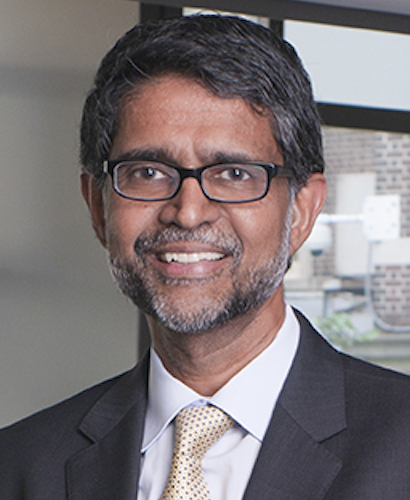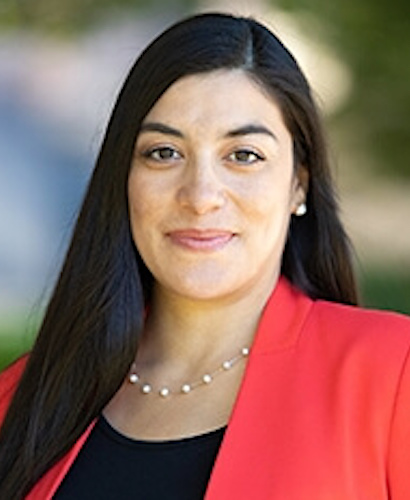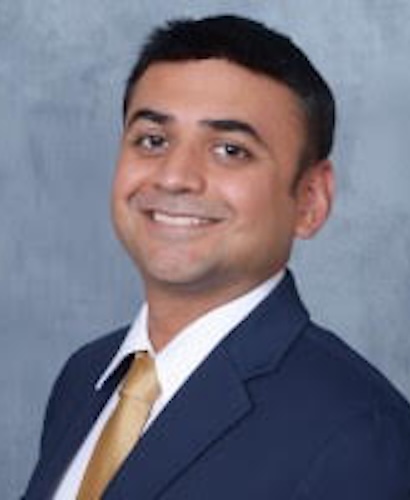Title: Autonomous Micro Aerial Vehicles with Applications to Precision Agriculture and Forestry
Abstract: Autonomous robots enable the automated creation of high-quality maps, which is tedious to do manually, especially in hard-to-access, dangerous environments. In this talk, I will describe our work on developing intelligent micro aerial vehicles, the abstractions, architecture, and algorithms used for mission specification, motion planning and control, and semantic mapping in GPS-denied environments. I will show how our robots can fly autonomously under the forest canopy and between tree lines to acquire information for precision agriculture and forestry.
Vijay Kumar is the Nemirovsky Family Dean of Penn Engineering with appointments in the Departments of Mechanical Engineering and Applied Mechanics, Computer and Information Science, and Electrical and Systems Engineering at the University of Pennsylvania. He received his Bachelor of Technology degree from the Indian Institute of Technology, Kanpur and his Ph.D. from The Ohio State University in 1987. He has been on the Faculty in the Department of Mechanical Engineering at the University of Pennsylvania since 1987.
In addition to holding many administrative positions at Penn, Kumar has served as the assistant director of robotics and cyber physical systems at the White House Office of Science and Technology Policy (2012 – 2013). His lab has spun off many startups in robotics, and he is the founder of Exyn Technologies. He is a Fellow of the American Society of Mechanical Engineers (ASME) and the Institute of Electrical and Electronic Engineers (IEEE).
He has served on the editorial boards of the IEEE Transactions on Robotics and Automation, IEEE Transactions on Automation Science and Engineering, ASME Journal of Mechanical Design, and the Springer Tract in Advanced Robotics (STAR), and was the chief editor for the ASME Journal of Mechanisms and Robotics. He has won best paper awards at DARS 2002, ICRA 2004, ICRA 2011, RSS 2011, RSS 2013, ICRA 2014, BICT 2015, and MARSS 2016 and has advised doctoral students who have won Best Student Paper Awards at ICRA 2008, RSS 2009, and DARS 2010. He is the recipient of the 2012 ASME Mechanisms and Robotics Award, the 2012 IEEE Robotics and Automation Society Distinguished Service Award, a 2012 World Technology Network (wtn.net) award, a 2013 Popular Mechanics Breakthrough Award, a 2014 Engelberger Robotics Award, the 2017 IEEE Robotics and Automation Society George Saridis Leadership Award, the 2017 ASME Robert E. Abbott Award, the 2018 IEEE Robotics and Automation Pioneer Award, and the 2020 IEEE Robotics and Automation Field Award. He was elected to the National Academy of Engineering in 2013, American Philosophical Society in 2018, the American Academy of Arts and Sciences in 2022, and the National Academy of Inventors in 2023.


